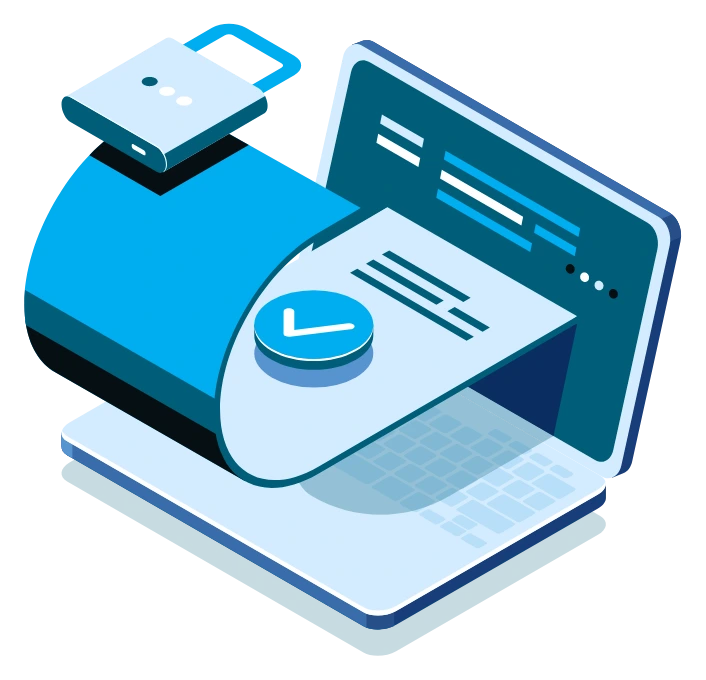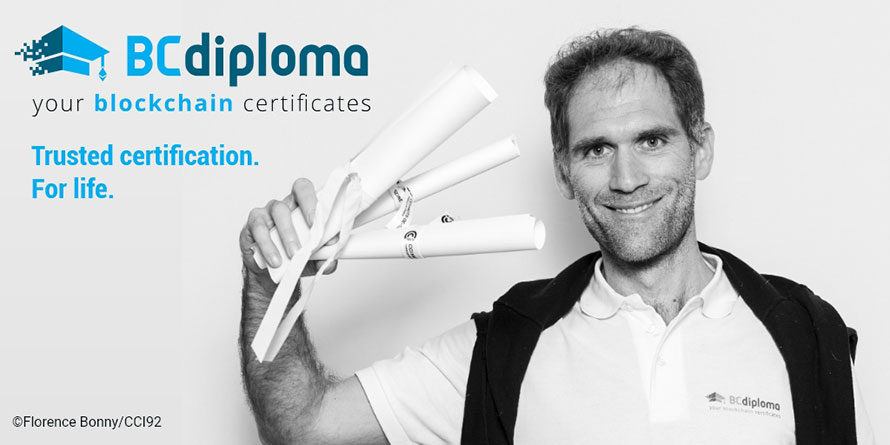Digital credential is one of the hottest topics in higher education today. The world’s leading universities are taking an interest in it and launching their blockchain authentification projects.
But what benefits can you expect from a digital credentialing platform? Let’s take stock of the situation with Luc Jarry-Lacombe, co-founder and CEO of BCdiploma, the world’s first blockchain digital credentials solution.
Benefit #1 Dematerializing and sharing credentials
BCdiploma means “Blockchain Certified diploma”: the latest 100% digital format for sharing certified academic documents in one click, also called blockchain digital credentials. Deployed in more than 100 institutions in +18 countries, BCdiploma offers a turnkey service for creating and sharing all types of certificates: professional certifications, training credentials, diplomas, micro-credentials, etc. Discover Academic Blockchain Credentials: MBS project.
BCdiploma’s values are clear: a powerful dematerialization tool for credentials and a service with very high added value for institutions and learners.

Benefit #2 The immediate gains of Digital Credentials
Regardless of the volume of certificates, the ROI is immediate: many of our customers are definitively settling the issue of dematerializing their certificate flows by choosing BCdiploma.
Up to 90% time savings: the flow starts from your data (in your management system), and everything can be automated until the certificates are sent. No more manual processing, duplicate requests, archiving constraints, etc.
No technical skills are required to deploy and use the solution: BCdiploma is a turnkey SaaS application for immediate use.
Benefit #3 Maximum security of blockchain Digital Credentials
Being able to prove that you have obtained skill certificates over several years, potentially from several training organizations, requires perfect retention of the certificates, not to mention securing them… to avoid forgeries!
That’s where the blockchain comes in: this information storage technology brings transparency, durability and security. Data stored on the blockchain can never be modified again.
BCdiploma’s know-how consists precisely in making this property usable through a simple certificate format to be used by all players (training organizations, corporate, universities, learners, recruiters).

Benefit #4 Blockchain Digital Credentials are valid for life
Wondering why you should give up paper diplomas? Let’s not even talk about forgeries. Ask around… how many people find their paper certificates after a few months or years? And often you will be asked for a recent certificate or a duplicate and you will have to contact your training organization.
BCdiploma definitively settles this question with a certificate that is still valid and can be used for life.
Benefit #5 Integrating Digital Credentials into your Learning Management System – LMS
By integrating BCdiploma via API to your Learning Managment System, you multiply the advantages of your LMS. This is precisely the work undertaken with the Modern Campus Destiny One team. Their customers will soon be able to get a block chain certification component in their Student Management System.
“By partnering with BCdiploma, Modern Campus Destiny One customers will gain the flexibility to offer the kinds of verified digital credentials today’s students and employers are looking for” said Peter DeVries, president and chief operating officer of Modern Campus.
“This responsiveness to the needs of our customers is what makes Modern Campus an innovative leader in the rapidly changing education market, and we’re thrilled to work with a like-minded, innovative company like BCdiploma.“
Open Badges, Digital Credentials, Micro-Credentials… how to find your way around? And what are Stackable Credentials?
Let’s resume: training courses can lead to a certification, a diploma, a certificate of achievement, etc. A micro-credential is a certifying part of professional training aimed at validating a homogeneous and coherent set of skills.

In all cases, the training institution delivers the diploma or certificate to the learner, corresponding to the training or the course followed. When they are issued in a digital format, they are called digital credentials.
Micro-certification is an educational practice aiming at the certification of one or more skills, often in co-validation with professionals, or during a short training course. Micro credentials are often issued as badges, and Open Badge is the most common format.
Professional certifications can be broken down into micro-credentials, that can be validated over a long period of time to promote lifelong learning. Micro-credentials, or Stackable Credentials, are validated and, in the end, they are assembled to form a seamless and comprehensive path.
